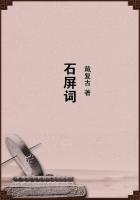M. de Longueville, though he had the grand name of Orleans, together with vivacity, an agreeable appearance, generosity, liberality, justice, valour, and grandeur, yet never made any extraordinary figure in life, because his ideas were infinitely above his capacity. If a man has abilities and great designs, he is sure to be looked upon as a man of some importance; but if he does not carry them out, he is not much esteemed, which was the case with De Longueville.
Character of the Duc de Beaufort.
M. de Beaufort knew little of affairs of moment but by hearsay and by what he had learned in the cabal of "The Importants," of whose jargon he had retained some smattering, which, together with some expressions he had perfectly acquired from Madame de Vendome, formed a language that would have puzzled a Cato. His speech was short and stupidly dull, and the more so because he obscured it by affectation. He thought himself very sufficient, and pretended to a great deal more wit than came to his share. He was brave enough in his person, and outdid the common Hectors by being so upon all occasions, but never more 'mal a propos' than in gallantry. And he talked and thought just as the people did whose idol he was for some time.
Character of the Dice d'Elbeuf.
M. d'Elbeuf could not fail of courage, as he was a Prince of the house of Lorraine. He had all the wit that a man of abundantly more cunning and good sense could pretend to. He was a medley of incoherent flourishes.
He was the first Prince debased by poverty; and, perhaps, never man was more at a loss than he to raise the pity of the people in misery. Acomfortable subsistence did not raise his spirits; and if he had been master of riches he would have been envied as a leader of a party.
Poverty so well became him that it seemed as if he had been cut out for a beggar.
Character of the Duc de Bouillon.
The Duc de Bouillon was a man of experienced valour and profound sense.
I am fully persuaded, by what I have seen of his conduct, that those who cry it down wrong his character; and it may be that others had too favourable notions of his merit, who thought him capable of all the great things which he never did.
Character of M. de Turenne.
M. de Turenne had all the good qualities in his very nature, and acquired all the great ones very early, those only excepted that he never thought of. Though almost all the virtues were in a manner natural to him, yet he shone out in none. He was looked upon as more proper to be at the head of an army than of a faction, for he was not naturally enterprising.
He had in all his conduct, as well as in his way of talking, certain obscurities which he never explained but on particular occasions, and then only for his own honour.
Character of Marechal de La Mothe.
The Marechal de La Mothe was a captain of the second rank, full of mettle, but not a man of much sense. He was affable and courteous in civil life, and a very useful man in a faction because of his wonderful complacency.
Character of the Prince de Conti.
The Prince de Conti was a second Zeno as much as he was a Prince of the blood. That is his character with regard to the public; and as to his private capacity, wickedness had the same effect on him as weakness had on M. d'Elbeuf, and drowned his other qualities, which were all mean and tinctured with folly.
Character of M. de La Rochefoucault.
M. de La Rochefoucault had something so odd in all his conduct that Iknow not what name to give it. He loved to be engaged in intrigues from a child. He was never capable of conducting any affair, for what reasons I could not conceive; for he had endowments which, in another, would have made amends for imperfections . . . . He had not a long view of what was beyond his reach, nor a quick apprehension of what was within it; but his sound sense, very good in speculation, his good-nature, his engaging and wonderfully easy behaviour, were enough to have made amends more than they did for his want of penetration. He was constantly wavering in his resolution, but what to attribute it to I know not, for it could not come from his fertile imagination, which was lively. Nor can I say it came from his barrenness of thought, for though he did not excel as a man of affairs, yet he had a good fund of sense. The effect of this irresolution is very visible, though we do not know its cause. He never was a warrior, though a true soldier. He never was a courtier, though he had always a good mind to be one. He never was a good party man, though his whole life was engaged in partisanship. He was very timorous and bashful in conversation, and thought he always stood in need of apologies, which, considering that his "Maxims" showed not great regard for virtue, and that his practice was always to get out of affairs with the same hurry as he got into them, makes me conclude that he would have done much better if he had contented himself to have passed, as he might have done, for the politest courtier and the most cultivated gentlemen of his age.
Character of Madame de Longueville.
Madame de Longueville had naturally a great fund of wit, and was, moreover, a woman of parts; but her indolent temper kept her from ****** any use of her talents, either in gallantries or in her hatred against the Prince de Conde. Her languishing air had more charms in it than the most exquisite beauty. She had few or no faults besides what she contracted in her gallantry. As her passion of love influenced her conduct more than politics, she who was the Amazon of a great party degenerated into the character of a fortune-hunter. But the grace of God brought her back to her former self, which all the world was not able to do.
Character of Madame de Chevreuse.














